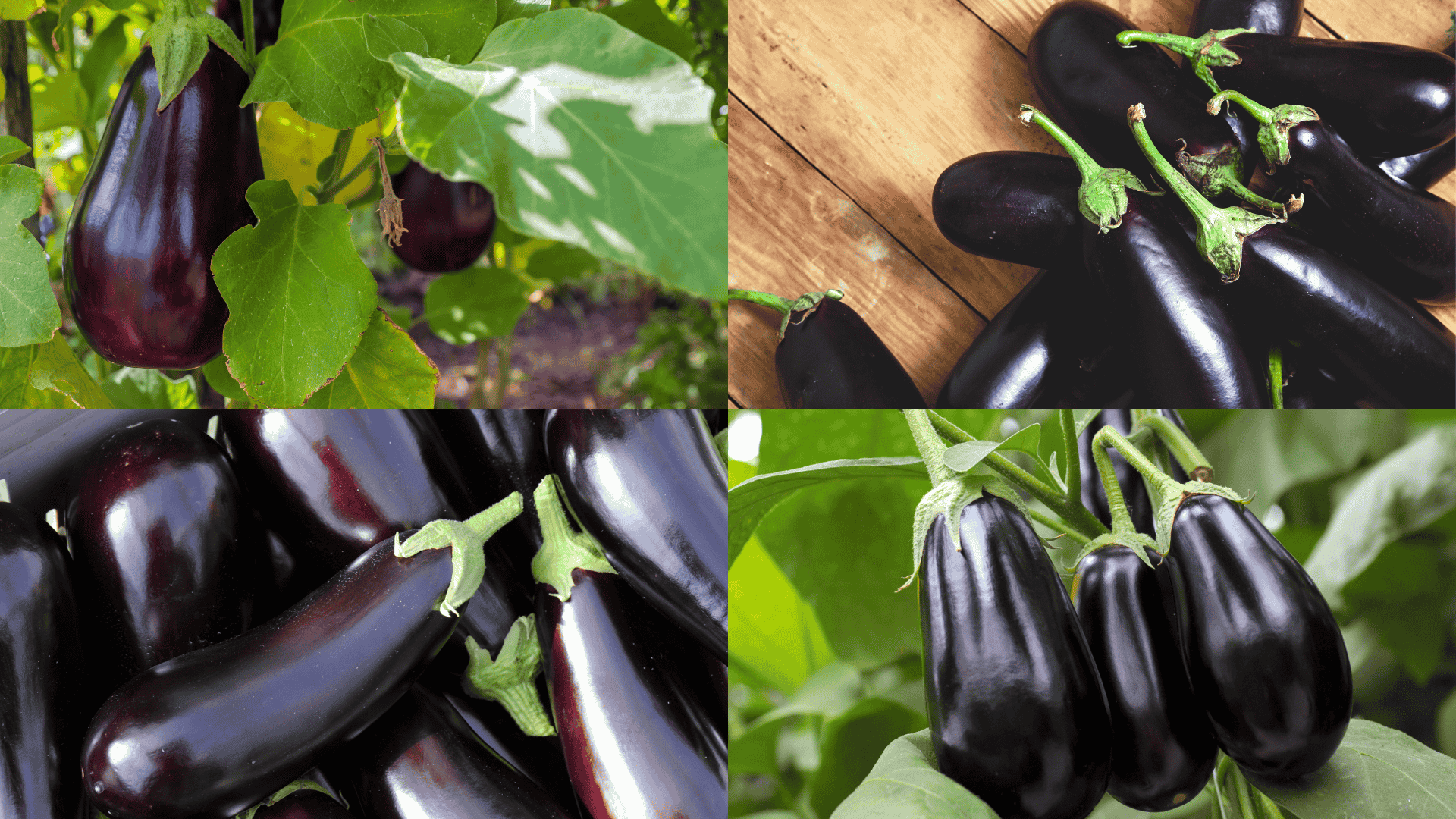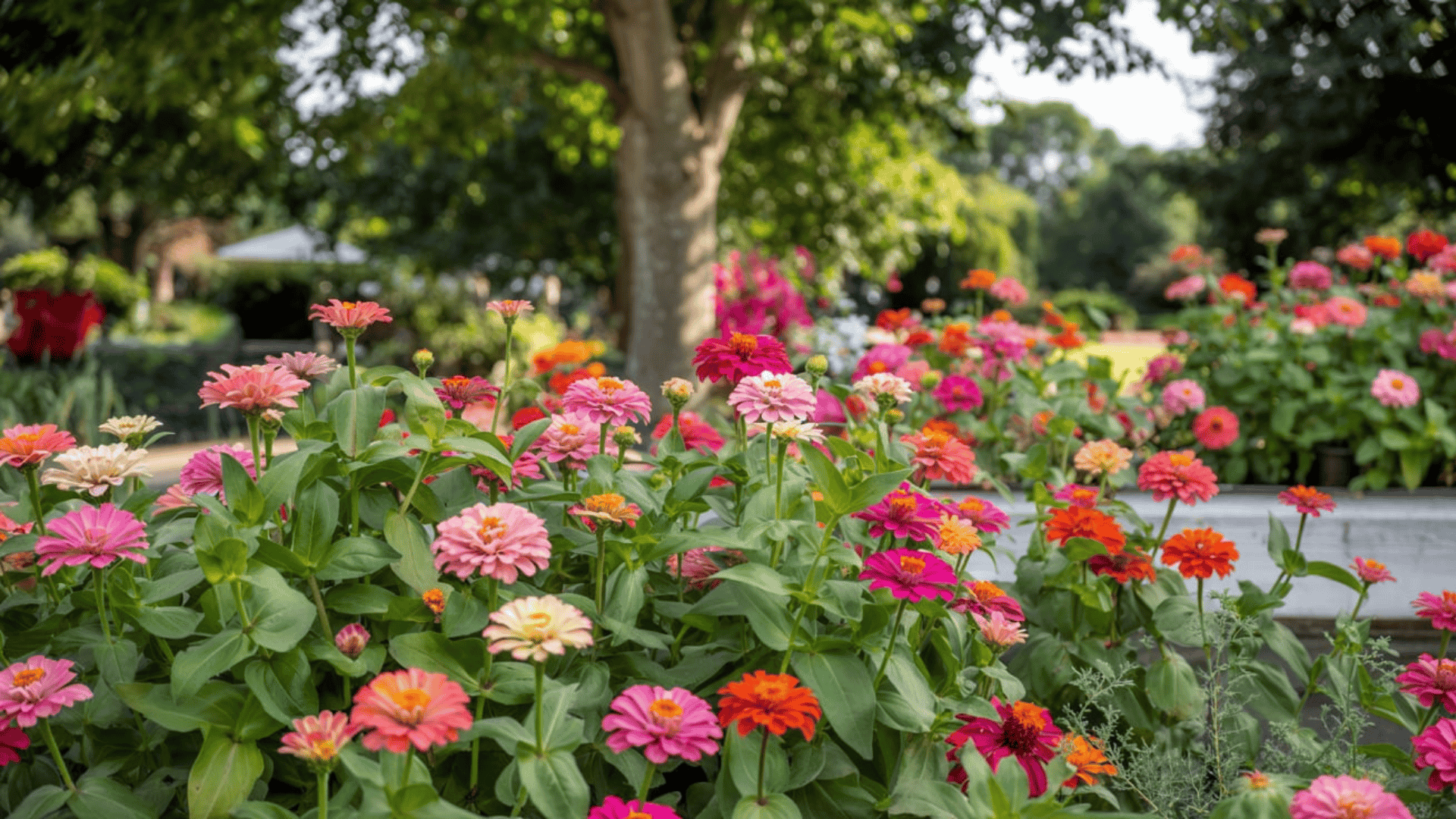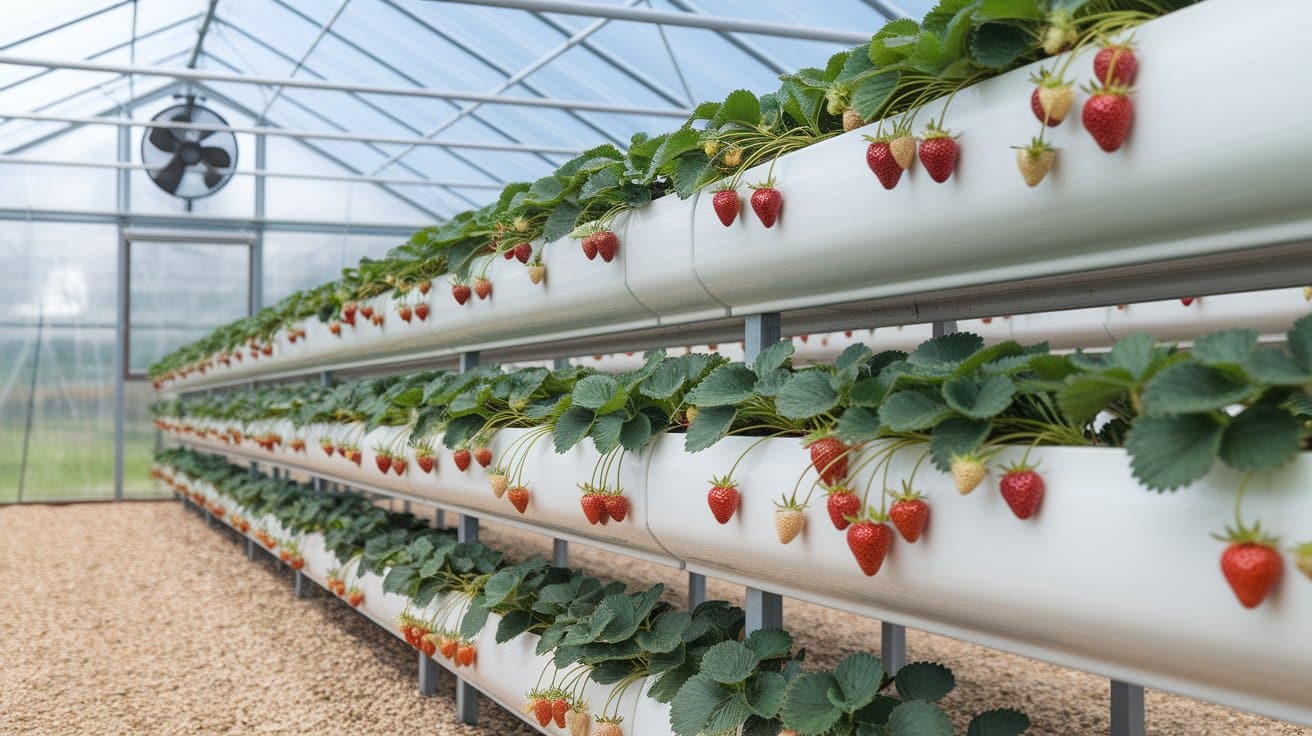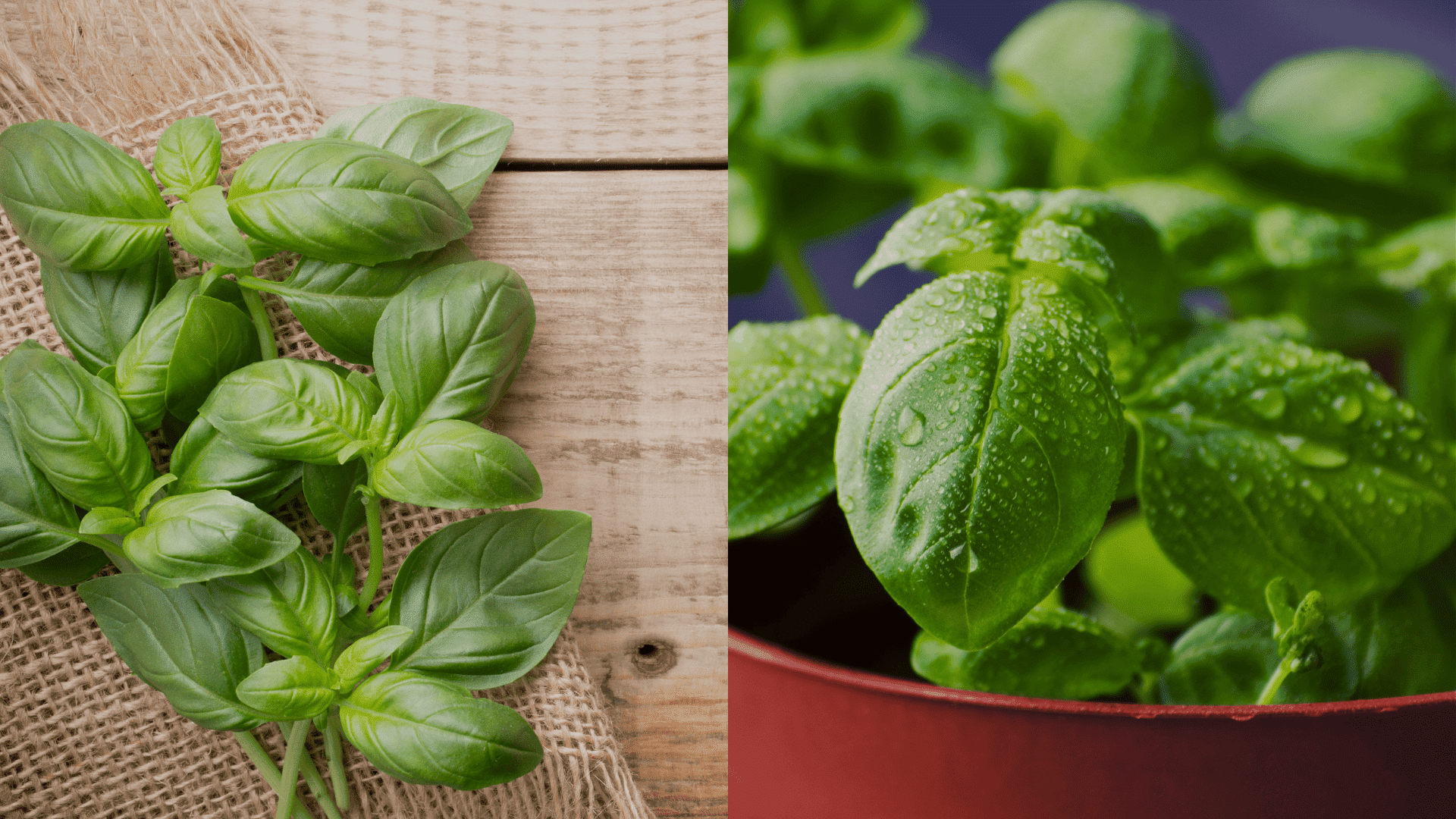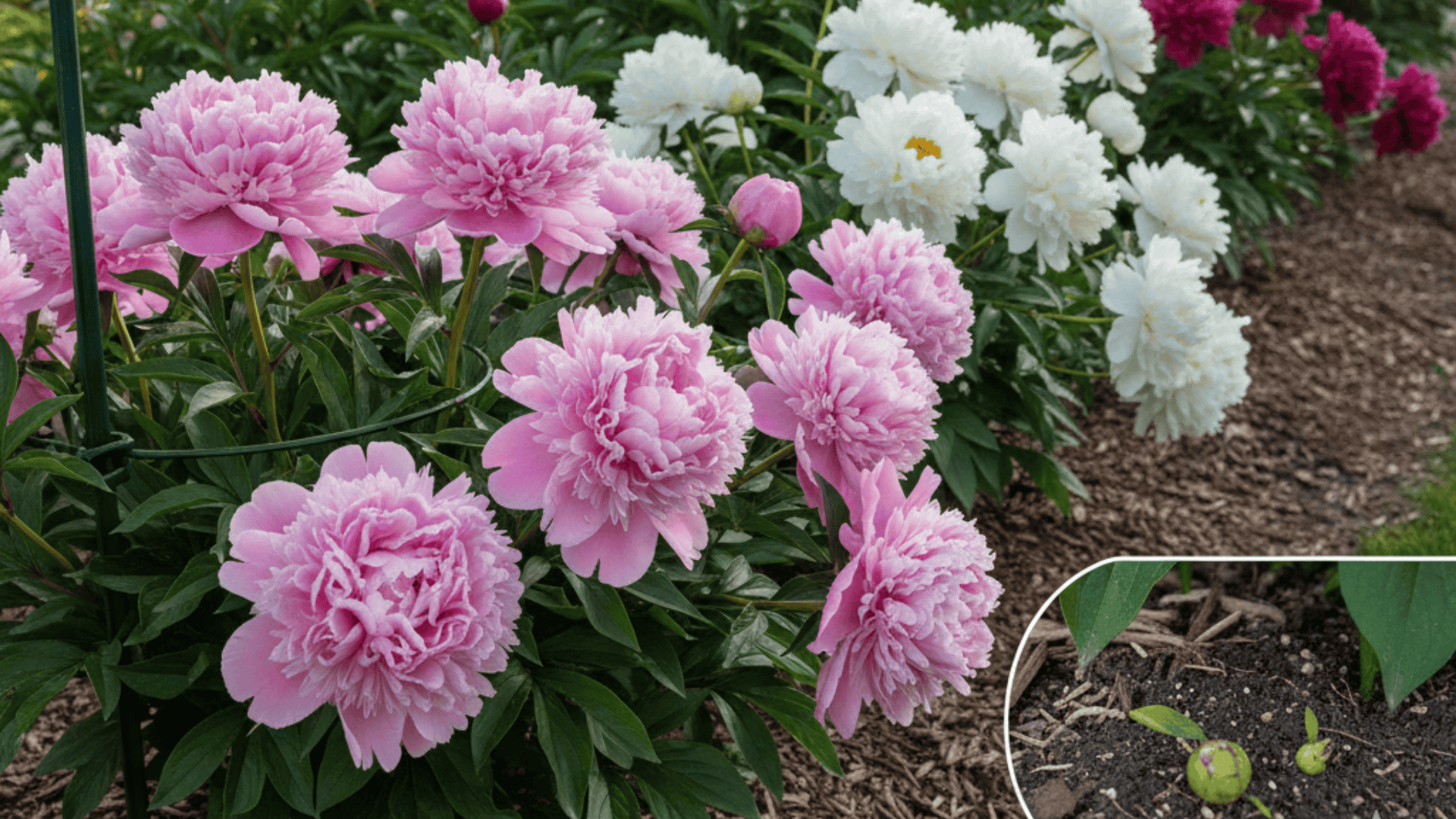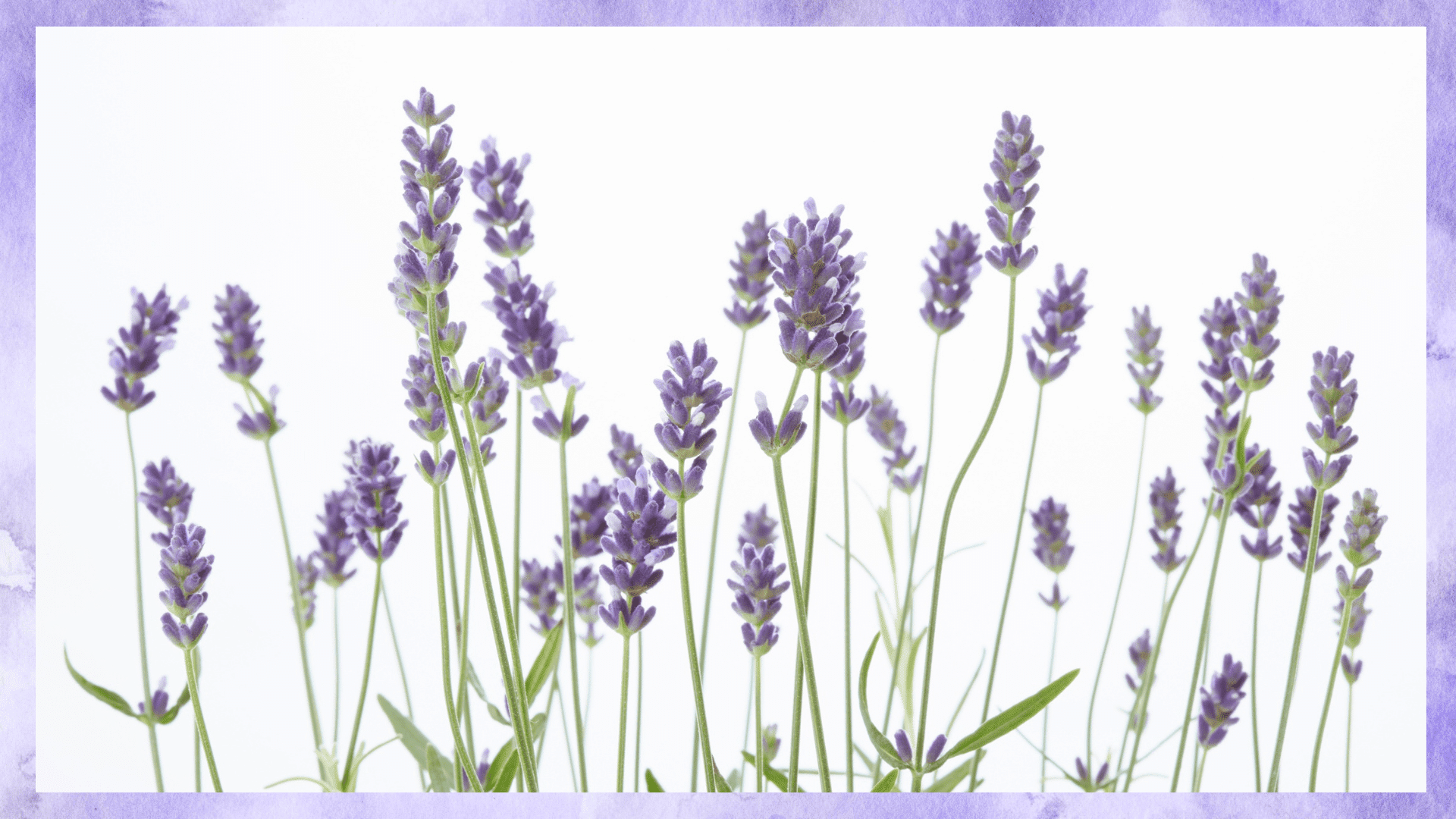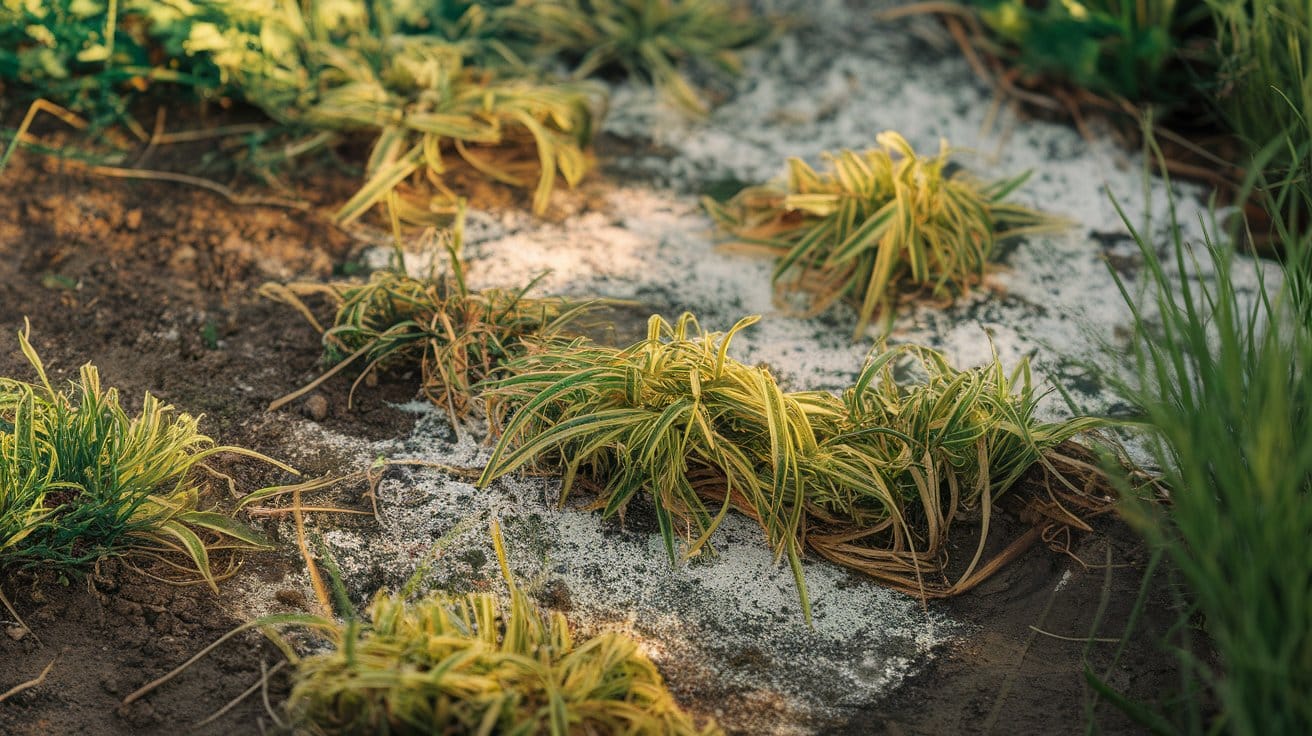In many gardens, eggplants are planted with care and expected to produce glossy purple fruits, yet harvests often fall short.
Pests swarm, plants weaken, and the cause is often the company they keep.
Some neighbors compete for food, invite insects, or spread disease, while others provide balance and protection.
Knowing the bad companion plants for eggplant is as important as choosing the right allies.
Supportive eggplant companion plants strengthen growth, deter pests, and enrich the soil.
The success of a harvest often depends on what to plant with eggplant, shaping both plant health and yield.
Bad Companion Plants for Eggplant
Certain plants should never grow near eggplants.
They either steal nutrients, share the same pests, or release chemicals that slow growth.
The following plants should be kept away from eggplants to prevent problems in growth and harvest.
1. Fennel
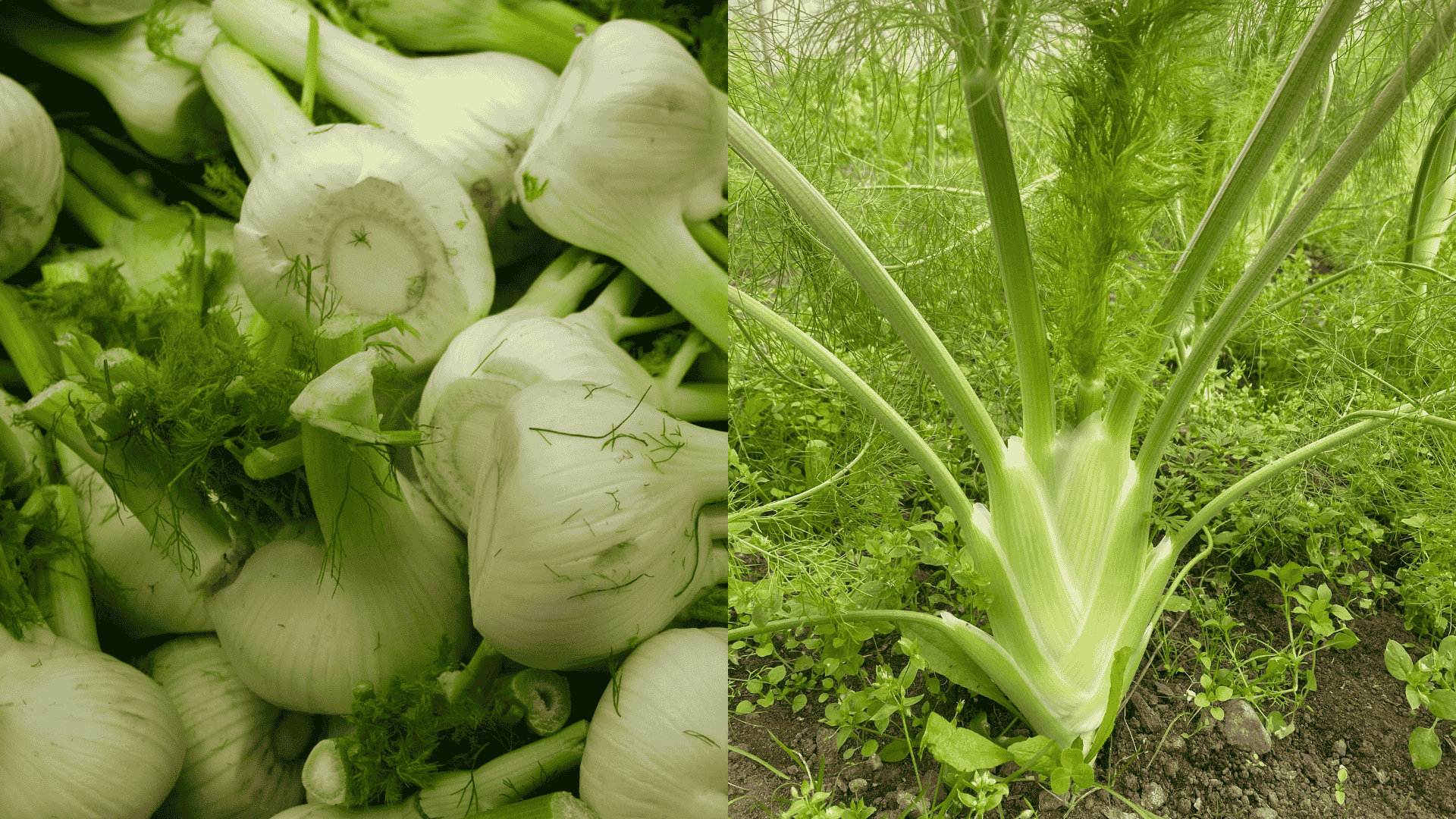
This herb releases chemicals into the soil that stunt most vegetables.
It doesn’t play well with neighbors, so keep it in its own corner of the garden.
The chemicals it produces are called allelopathic compounds, and they actively prevent other plants from growing well nearby.
Fennel is best grown on the edges of a garden where it cannot affect other crops, and keeping it isolated helps protect vegetables that need space and nutrients to grow well.
2. Tomatoes, Potatoes, and Peppers
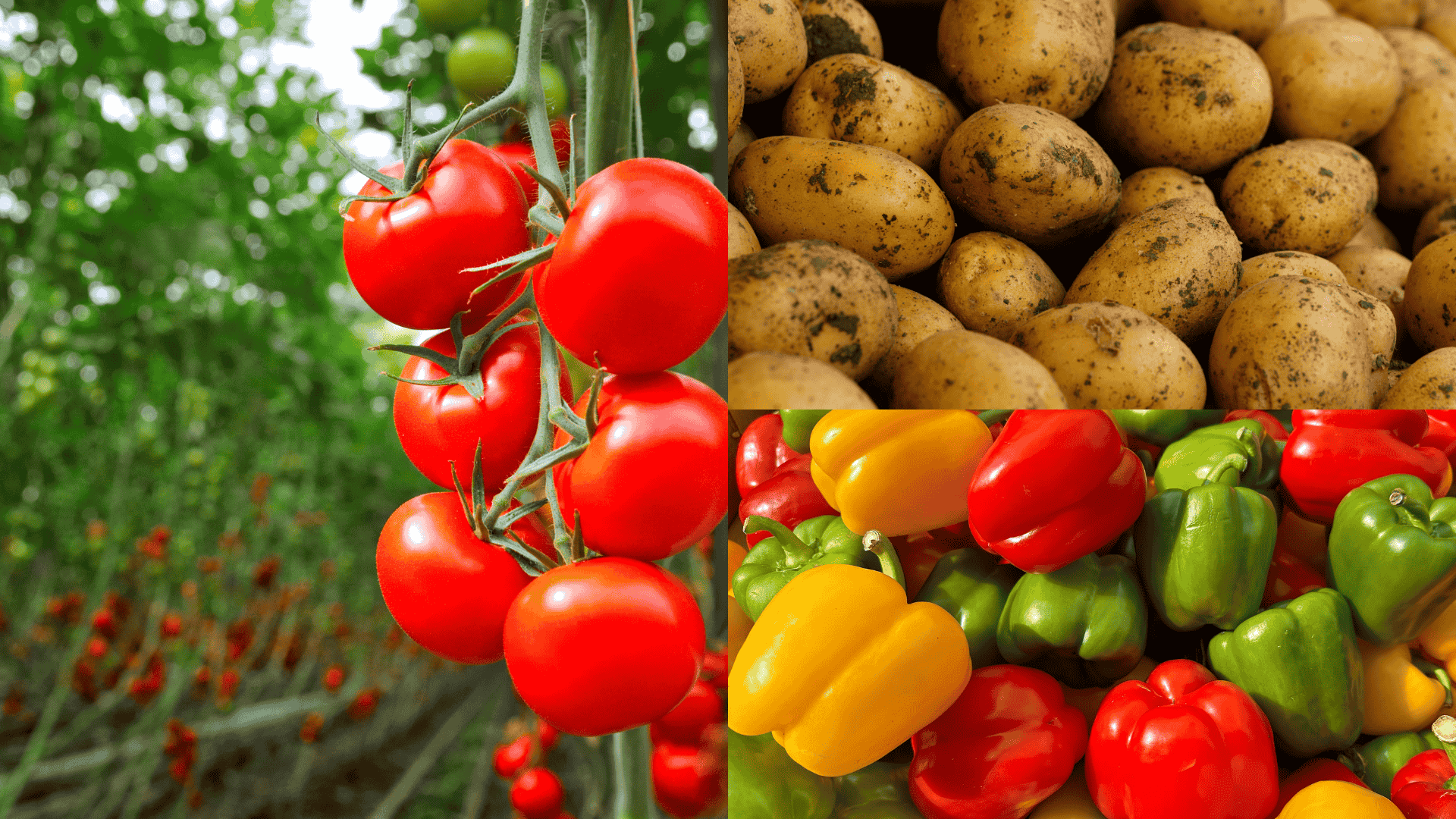
These are all nightshades, just like eggplant.
They attract the same beetles, aphids, and diseases.
Planting them together invites trouble. Pests spread faster, and blight can wipe out the whole bed.
Keep at least 10 feet between these plants and eggplants to reduce risk.
Growing these crops together also makes crop rotation harder, so placing them in a separate area helps prevent long-term soil problems and keeps each plant type healthier.
3. Corn
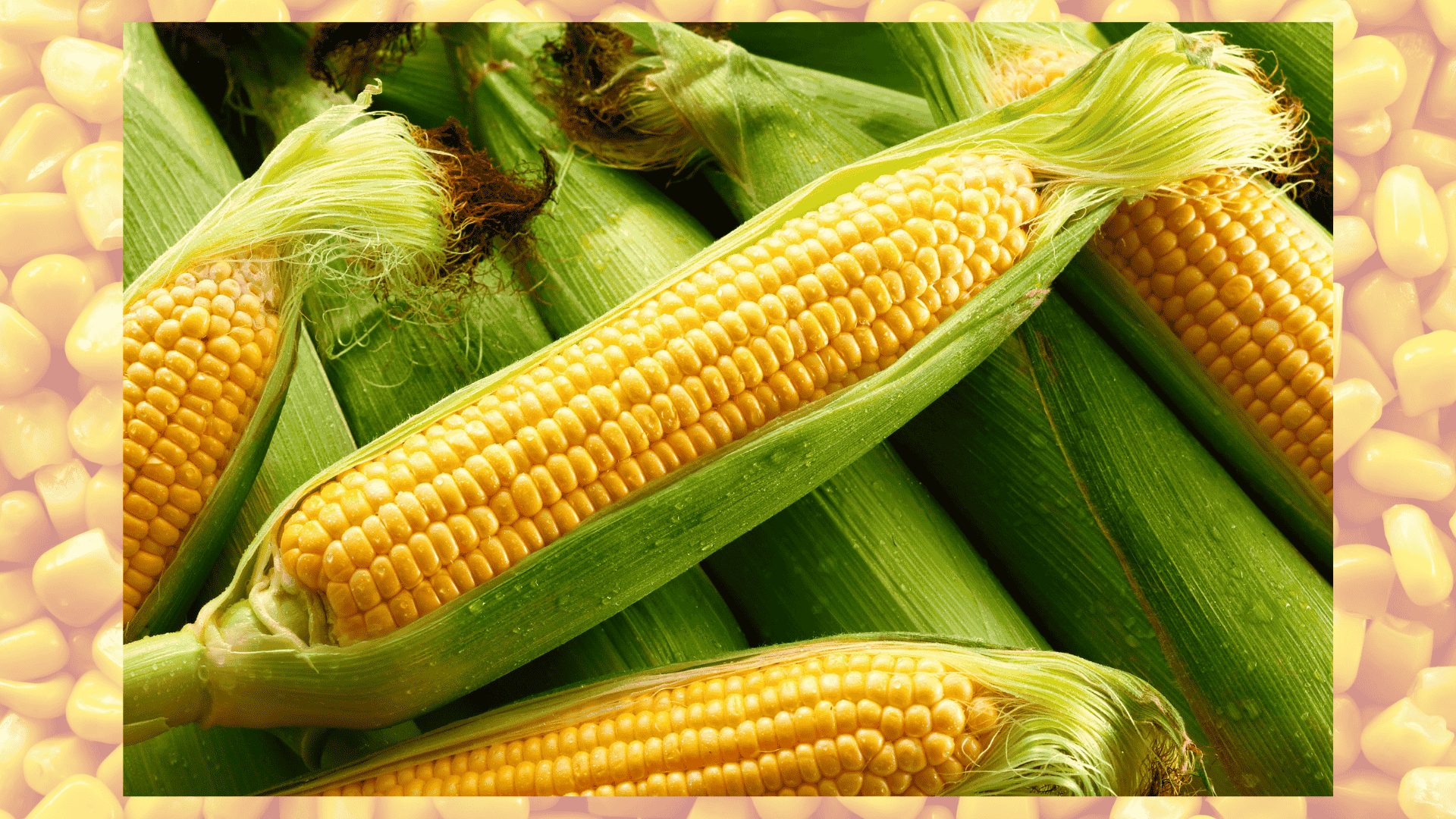
Corn has big roots and needs lots of nitrogen.
It competes hard for food and space.
Eggplants won’t get what they need if corn is nearby.
Corn also grows tall and can cast shade over eggplants, which need full sun to produce fruit well.
The shade from corn can slow flowering and reduce the number of fruits, so planting corn in its own bed ensures both crops get the conditions they need to thrive.
4. Broccoli, Cabbage, Kale
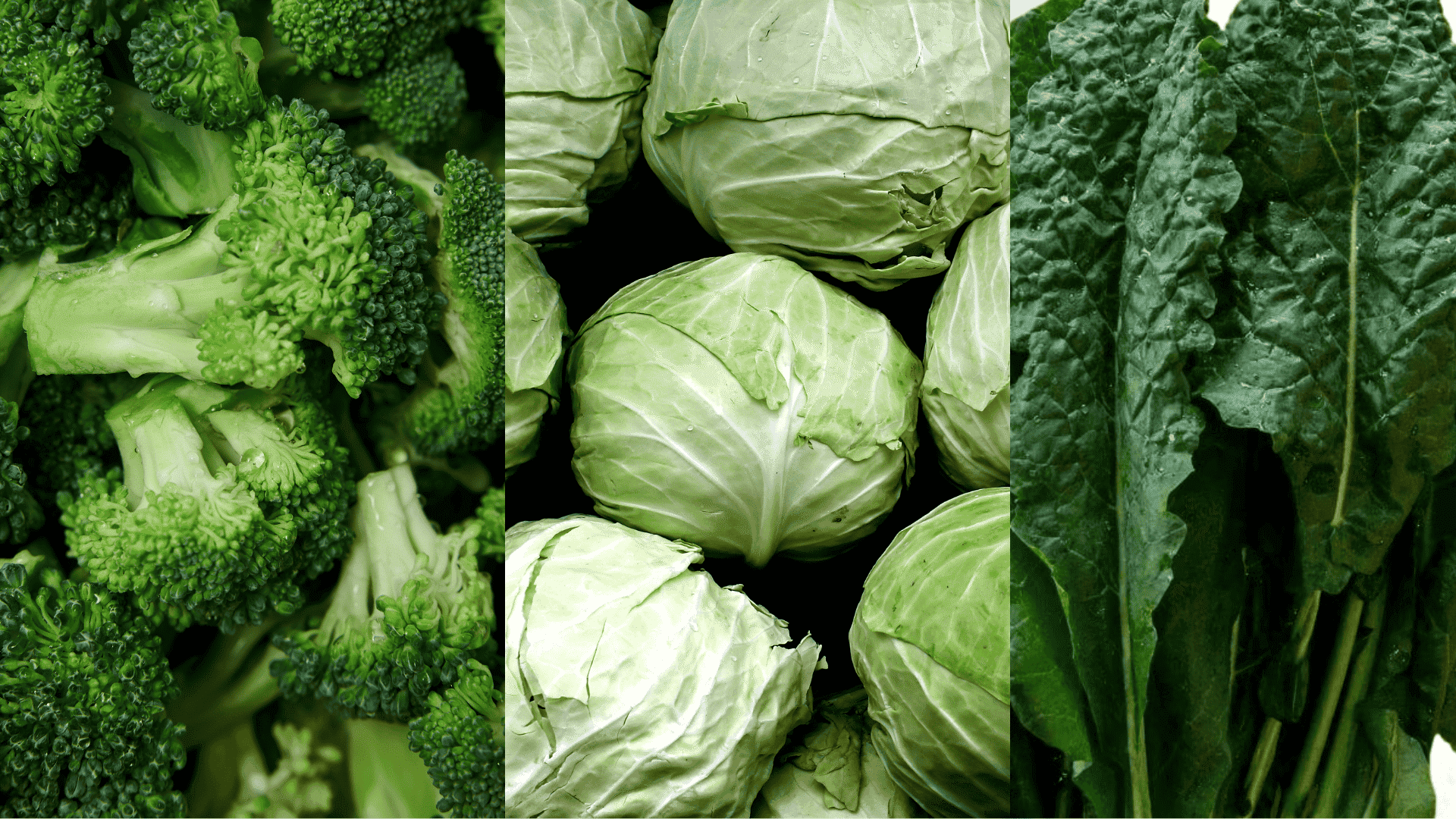
These crops have shallow, spreading roots.
They fight with eggplant for nutrients in the top layer of soil. Both plants end up weaker.
The competition is especially bad during the growing season when both need lots of food to develop properly.
Brassicas also attract pests like cabbage worms, which can move to eggplants if planted too close, so giving them separate space helps both crop types stay stronger.
5. Geraniums and Some Ornamentals
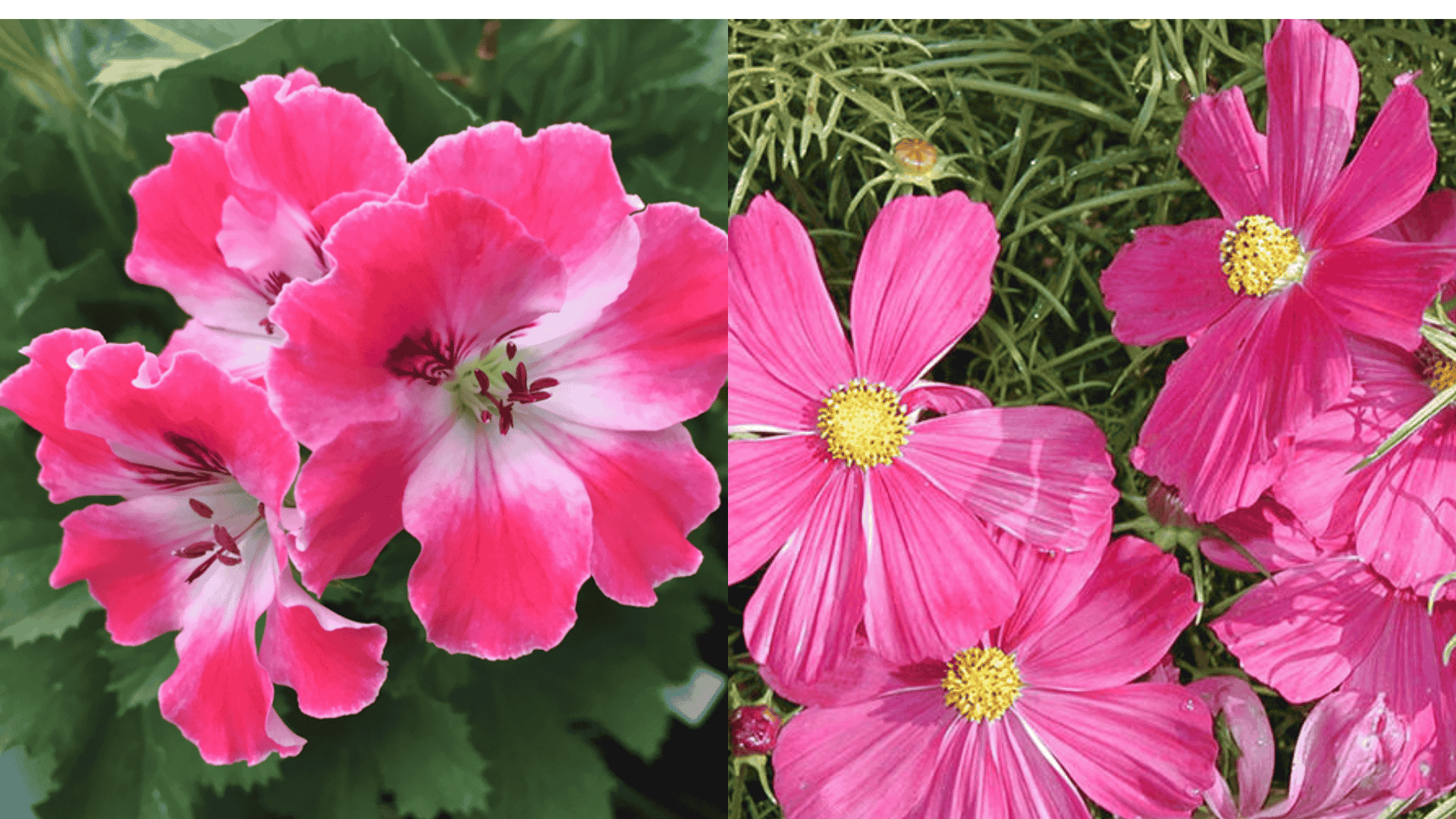
Pretty, but risky. Certain flowers can carry tobacco mosaic virus or other diseases that harm eggplants.
Unless it’s certain they are safe, keep them separate.
Stick with flowers that are known to be good companions, like marigolds or nasturtiums, for safer results.
Ornamental flowers may not show disease right away, so choosing trusted companions like marigolds lowers the risk of hidden problems in the garden.
Eggplant Companion Plants
Certain plants grow well near eggplants and make the bed stronger, healthier, and easier to manage.
These companions help by deterring pests, improving soil, and encouraging better fruit production.
They also support natural balance in the garden by reducing the need for extra chemicals.
Good partners create shade, hold moisture, and keep the soil from drying out too quickly.
With the right mix of plants, eggplants grow with fewer problems and yield more consistent harvests.
1. Marigolds
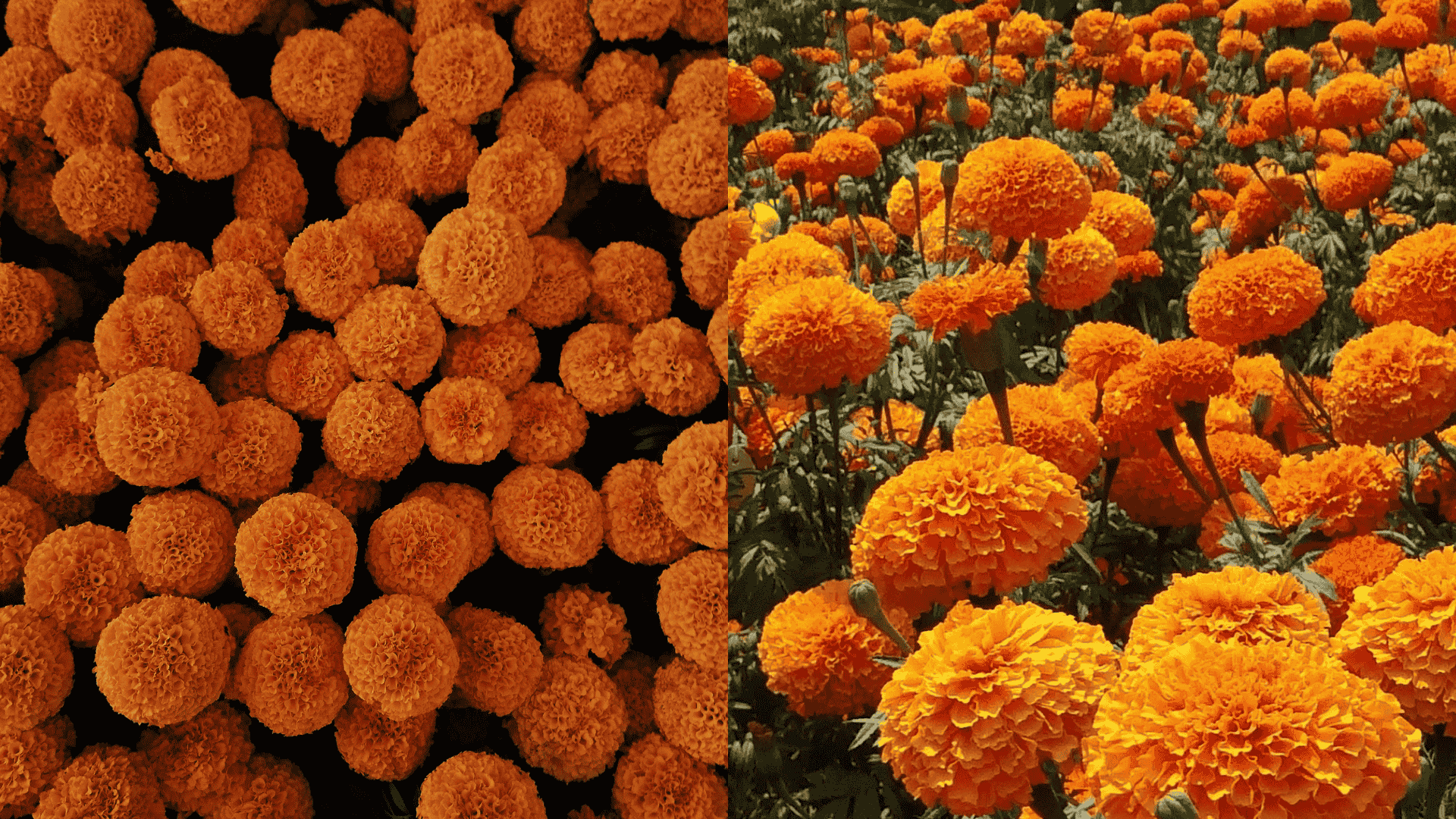
Marigolds are among the most reliable eggplant companion plants.
Their scent keeps aphids and beetles away when planted along bed edges.
They also attract beneficial insects that feed on common pests, offering protection throughout the season.
In addition, marigolds release natural compounds into the soil that deter root nematodes, which can damage eggplant roots.
With their bright flowers and protective qualities, marigolds are often recommended when deciding what to plant with eggplant.
2. Nasturtiums
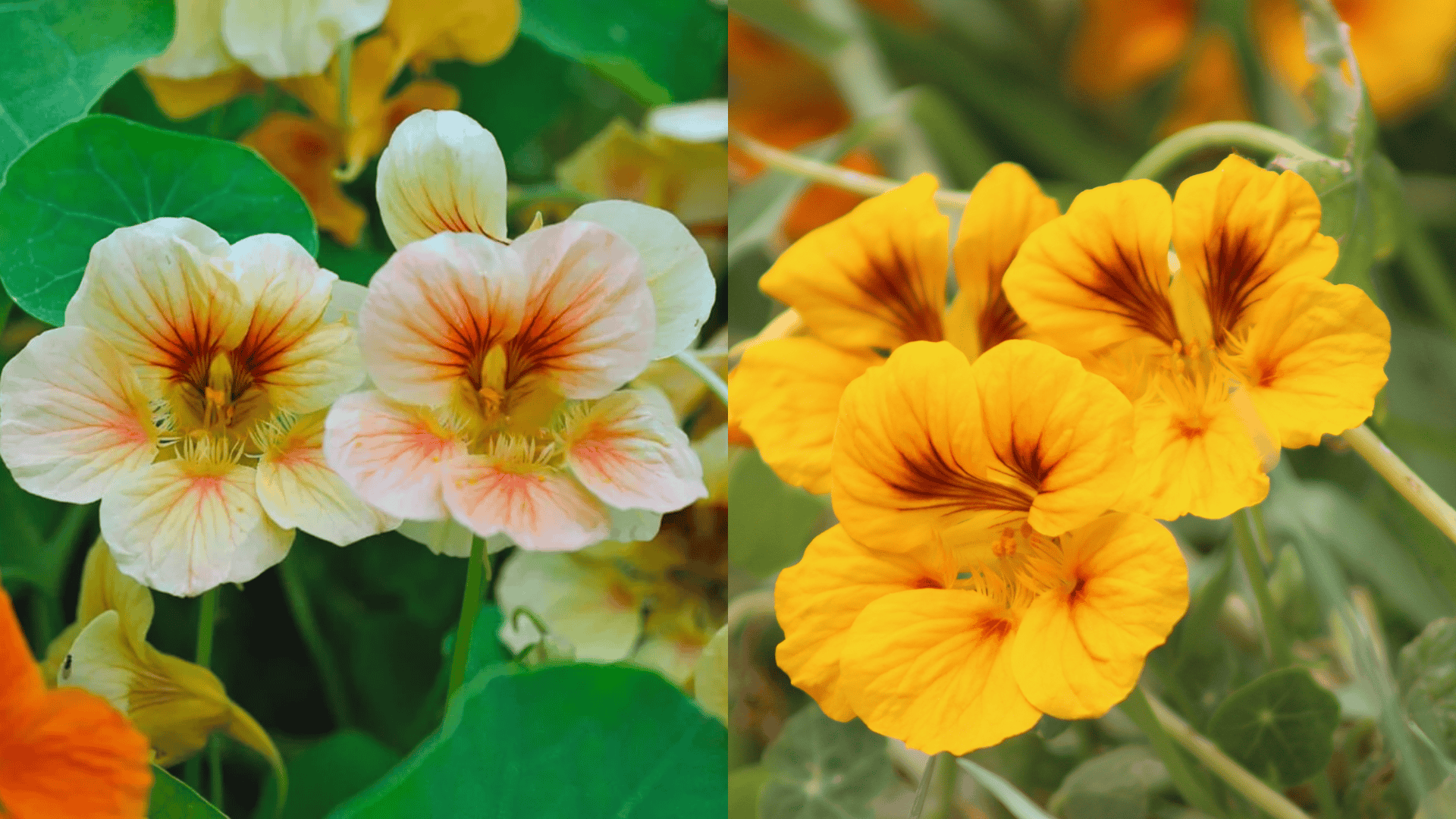
Nasturtiums act as a natural trap crop by drawing aphids and whiteflies away from nearby vegetables.
Their trailing vines spread across the soil, creating a bright ground cover that helps hold in moisture and limit weeds.
They also attract beneficial insects such as ladybugs, which feed on aphids and other soft-bodied pests.
With their low care needs and colorful flowers, nasturtiums add both protection and beauty to a garden bed.
3. Garlic and Onions
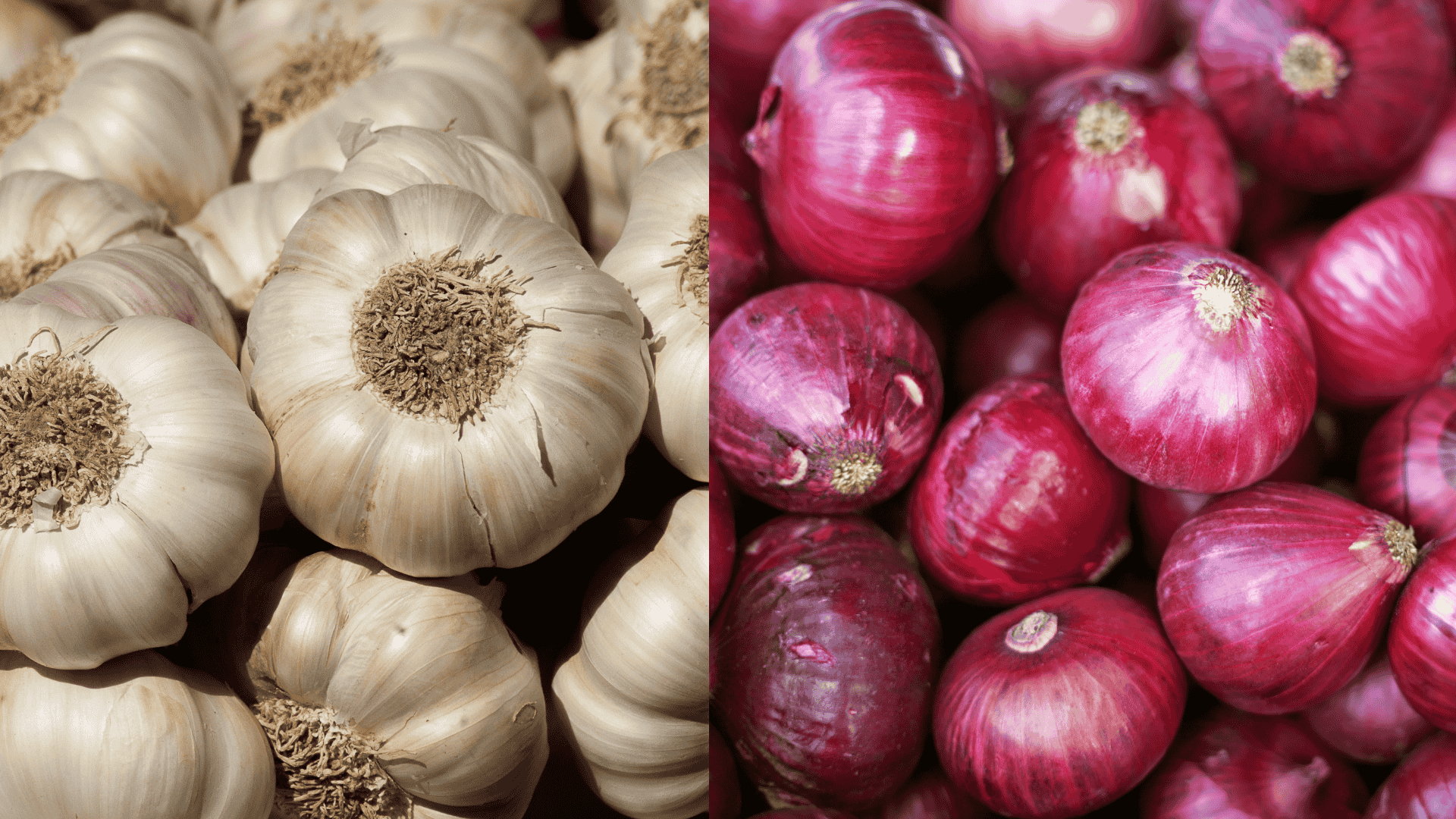
Garlic and onions are strong-smelling eggplant companion plants that confuse pests and make eggplants harder to locate.
When tucked between rows, they take little room but provide steady protection.
Both crops release sulfur compounds that may reduce soil-borne diseases and also deter pests like spider mites and slugs.
Their compact growth and protective qualities make them reliable choices when planning what to plant with eggplant in small or mixed beds.
4. Catnip
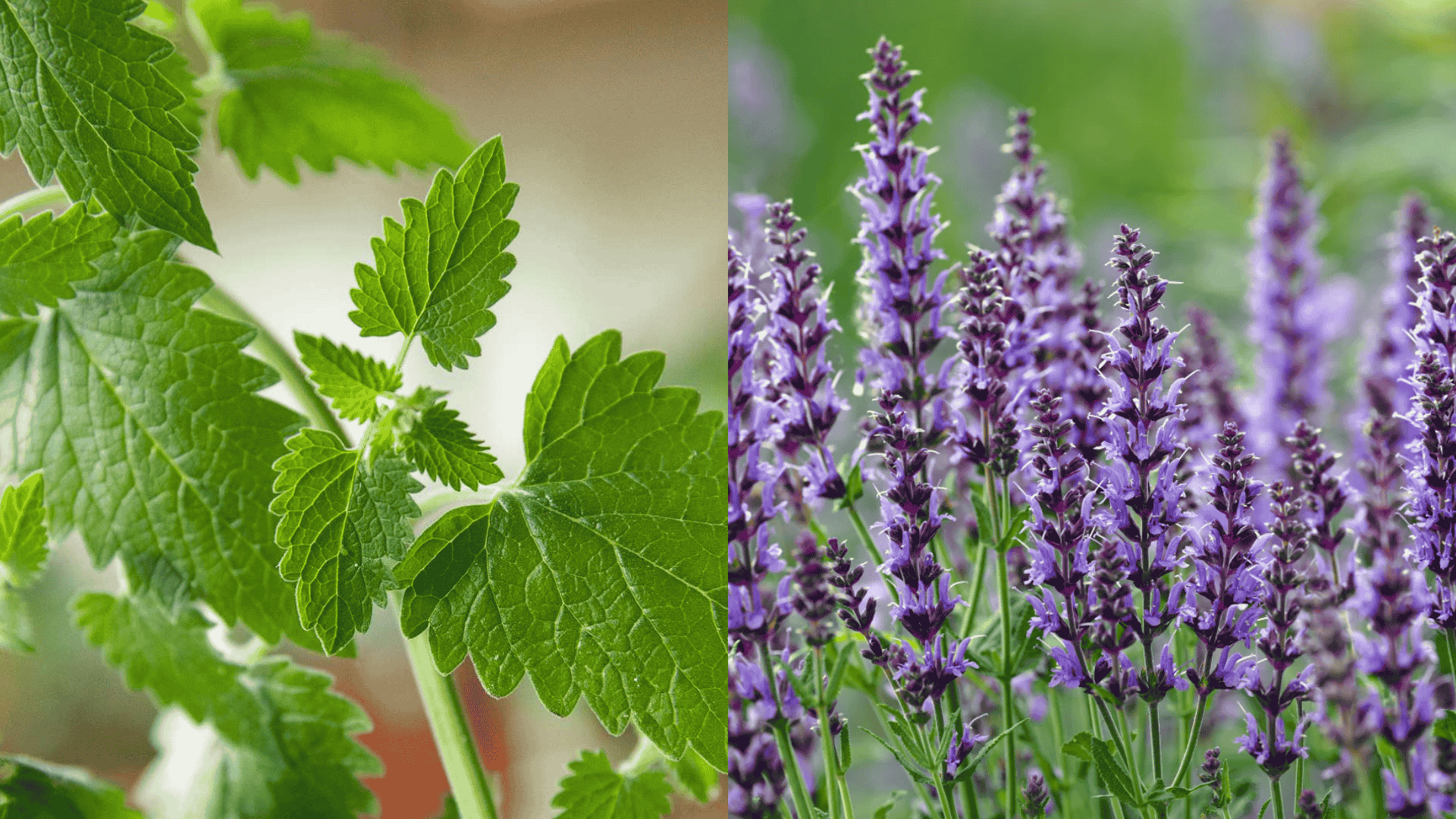
Catnip is widely recognized for its ability to repel flea beetles, which are among the most harmful pests for eggplants.
Even a few plants near the bed can noticeably reduce leaf damage.
Its strong aroma also discourages other insects, such as ants and squash bugs, providing broader protection.
Catnip adapts well to both containers and garden soil, and with regular trimming it can be kept manageable while still offering reliable pest control.
5. Beans and Peas
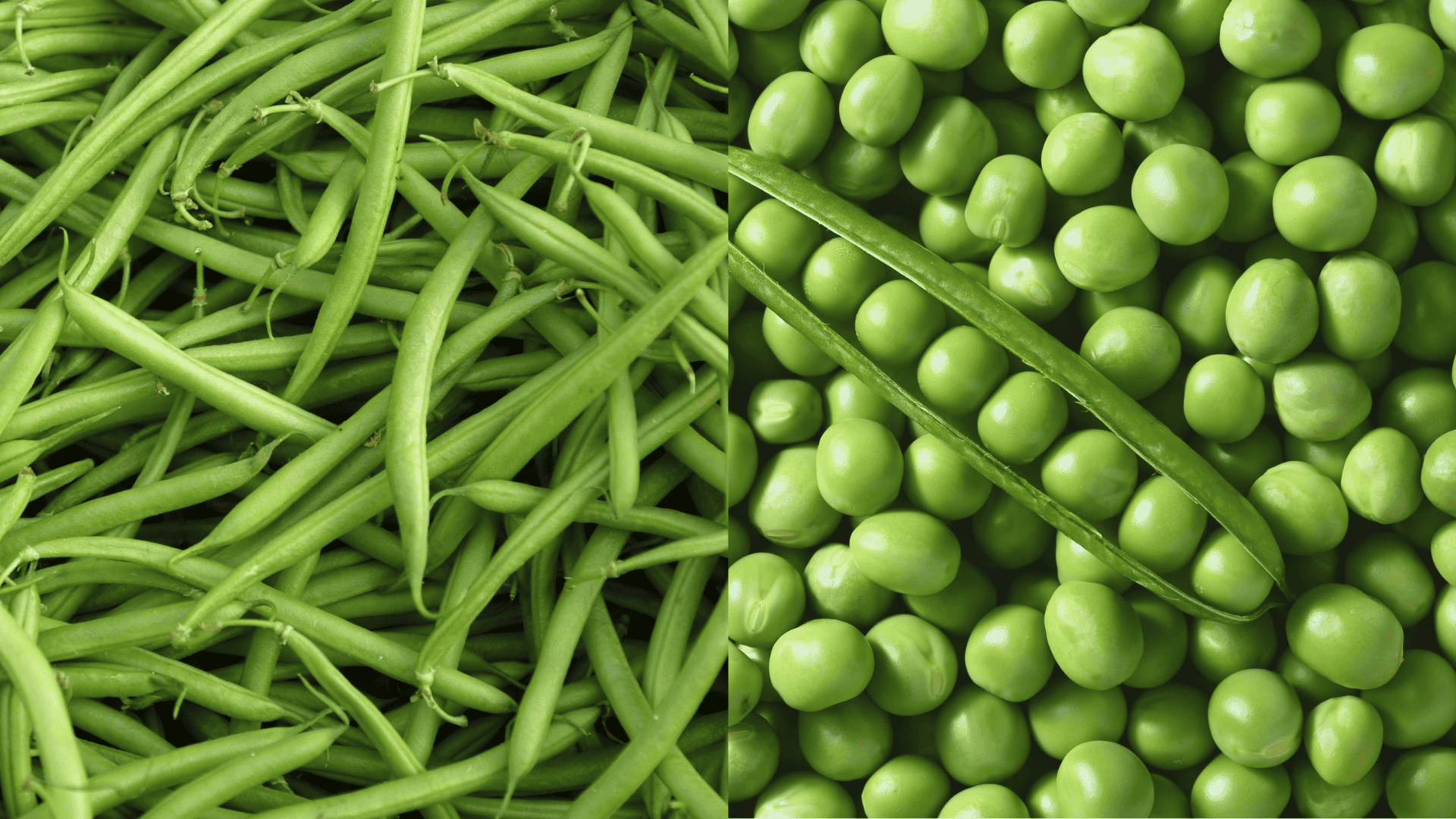
Beans and peas enrich the soil by fixing nitrogen, which supports stronger growth for nutrient-demanding crops.
They are versatile, available as bush types or climbing varieties, and adapt well to different garden layouts.
Their quick growth and ability to improve soil fertility make them long-term allies in productive planting systems.
They are often chosen in gardens as eggplant companion plants because they improve soil fertility and support healthy growth over time.
6. Borage, Dill, Cosmos, Zinnia
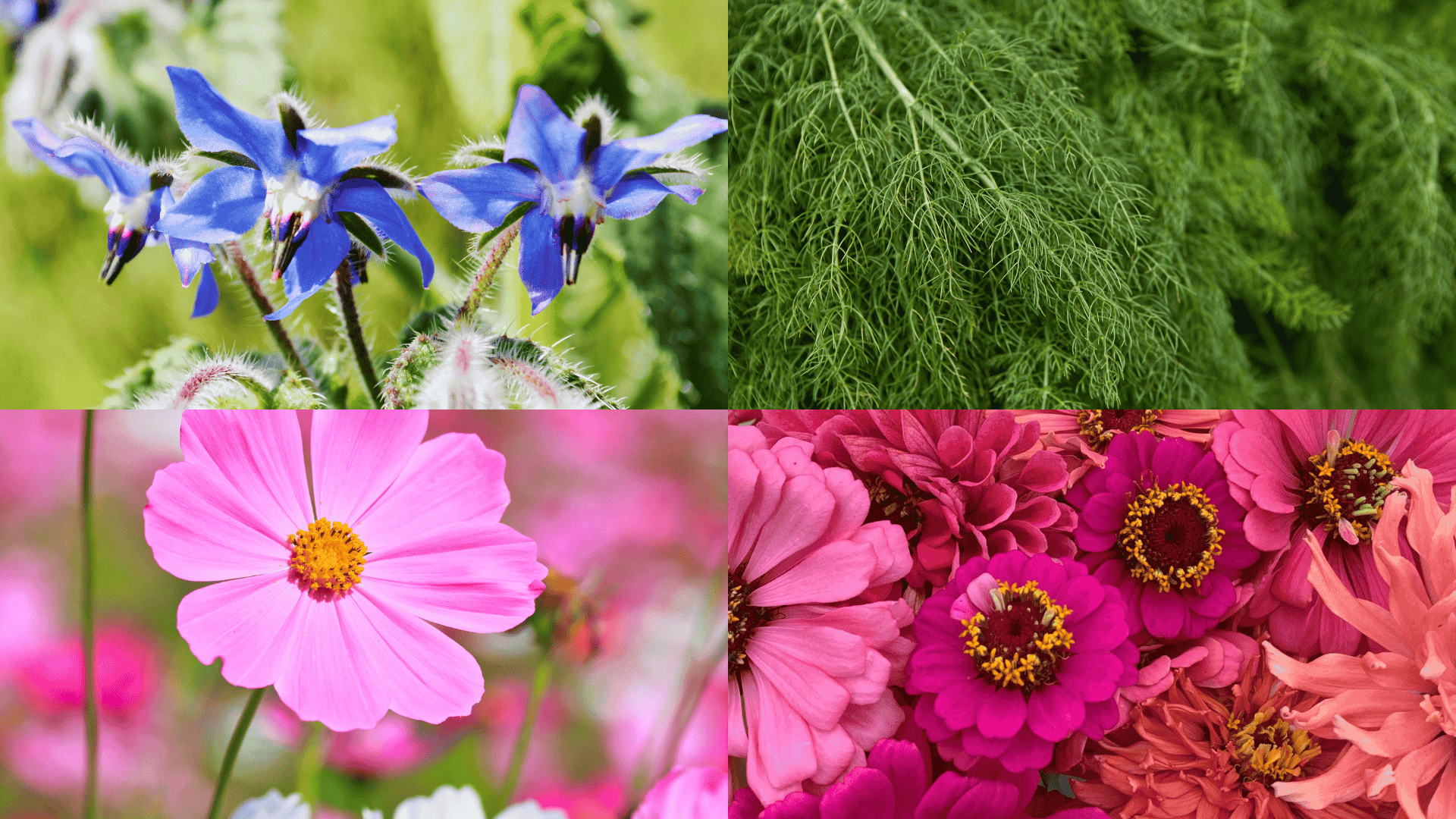
Flowering plants like borage, dill, cosmos, and zinnia bring pollinators into the garden, ensuring more flowers set fruit.
Borage also deters tomato hornworms, while dill provides nectar for predatory wasps that feed on caterpillars.
Cosmos and zinnias bloom for long periods, keeping pollinators active through the season.
Together, they add color, biodiversity, and improved yields to planting spaces.
7. Oregano, Thyme, Sweet Alyssum
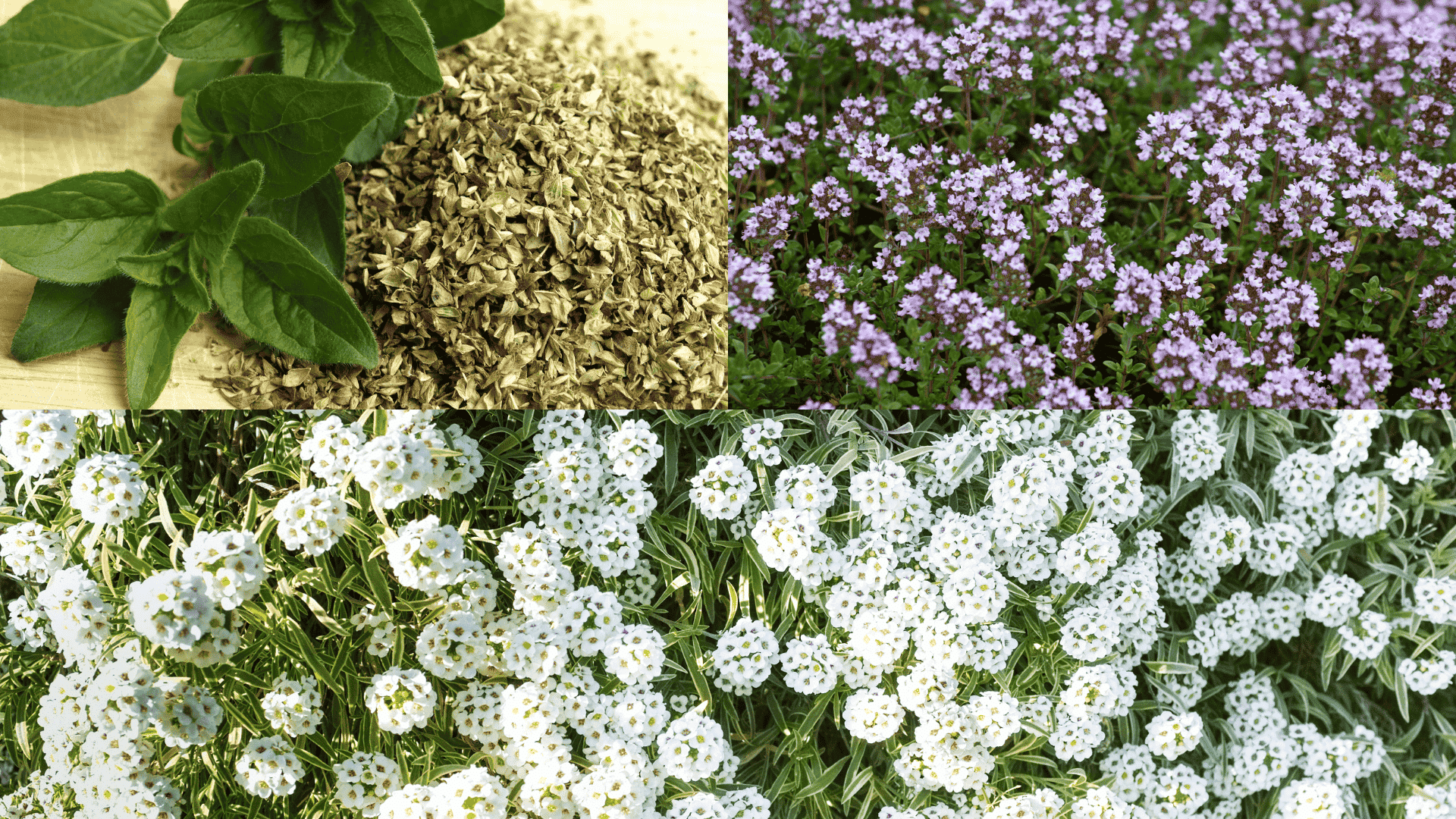
Low-growing plants such as oregano, thyme, and sweet alyssum act as living ground covers.
They shade the soil, retain moisture, and reduce weed growth, while their aromas deter harmful insects.
Sweet alyssum also attracts hoverflies, which prey on aphids. Hardy and easy to maintain, these herbs and flowers contribute to long-term balance in garden beds and add subtle fragrance and beauty.
8. Spinach and Lettuce
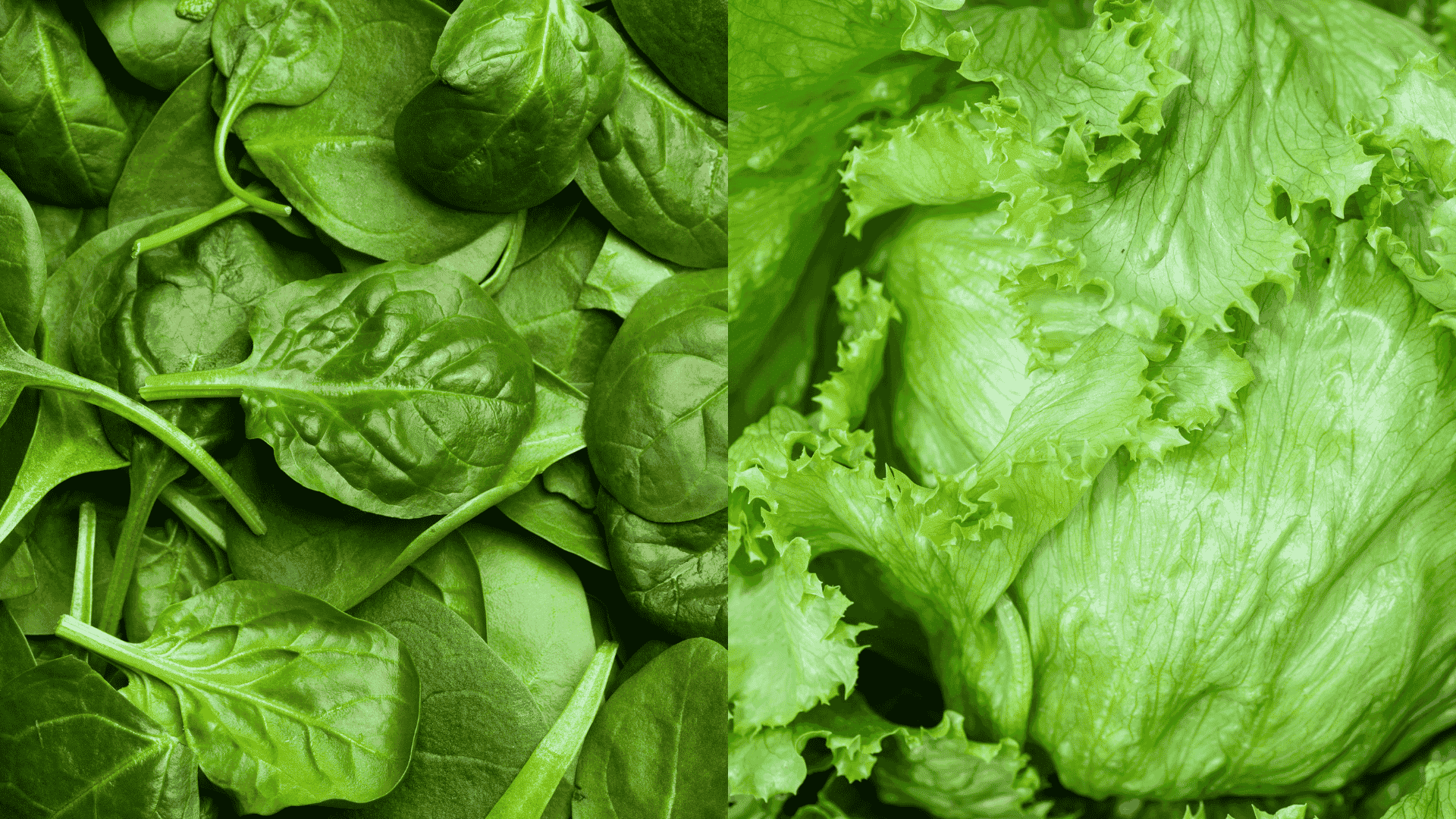
Spinach and lettuce are fast-growing greens that pair well with eggplant as companion plants.
They mature early in the season before eggplants spread out, allowing two harvests from one bed.
Spinach thrives in cooler spring weather, while lettuce grows quickly and adapts well to partial shade from eggplants.
With shallow roots that do not compete, these crops use space efficiently.
Companion Compatibility: Zucchini and Parsley with Eggplant
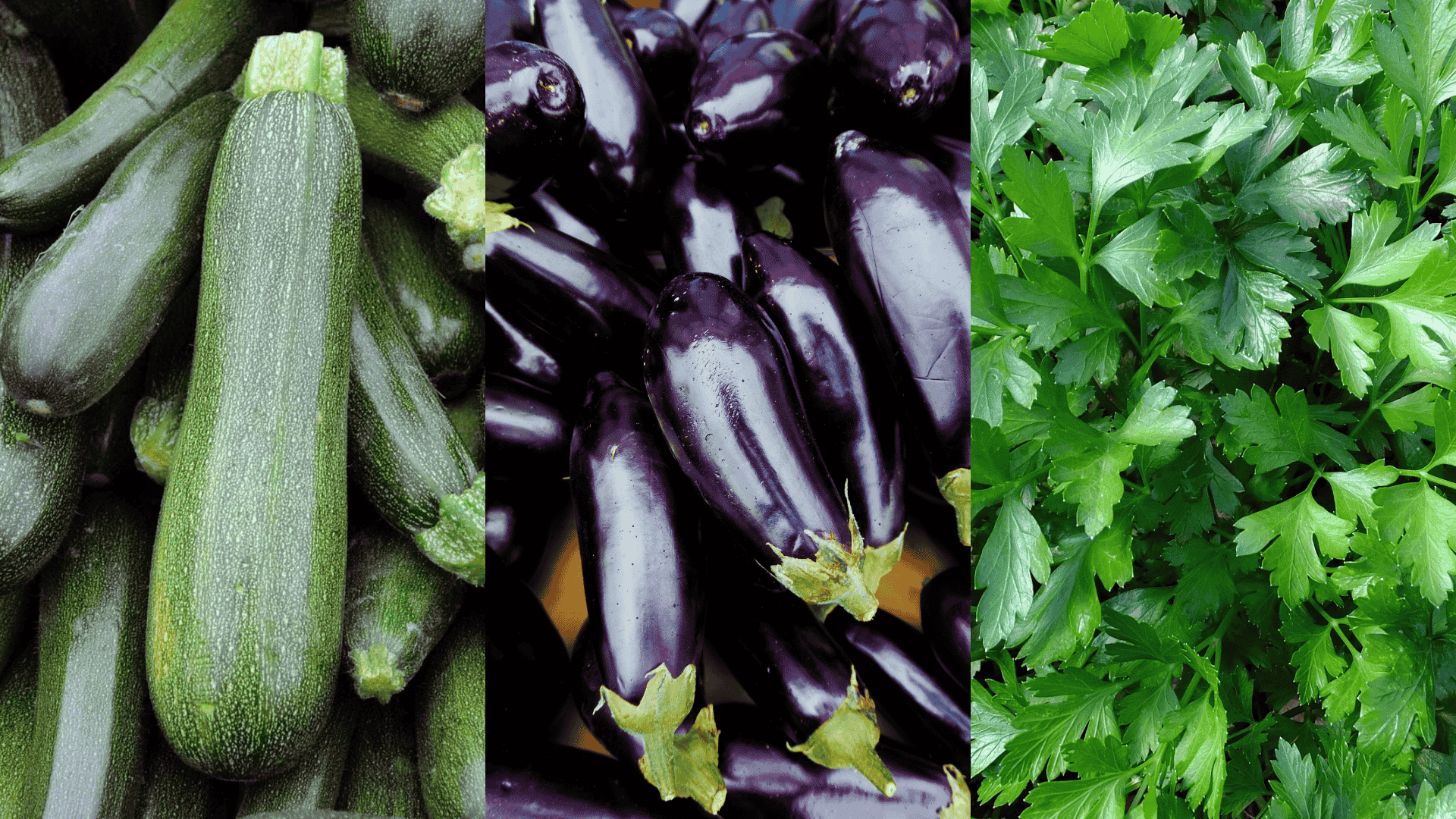
Some plants share space well with eggplant, while others create competition for nutrients or attract the same pests.
Zucchini and parsley can affect eggplant growth in different ways.
Are Zucchini and Eggplant Companion Plants?
No, they’re not good companions.
Zucchini and eggplant are both heavy feeders that need rich soil, consistent moisture, and full sun.
When planted close together, they compete for nutrients and space, leading to smaller yields for both.
They also attract similar pests such as aphids and spider mites, which can spread quickly between the two.
For healthier crops, plant them in separate sections of your garden.
Are Parsley and Eggplant Companion Plants?
Yes, they make good companions.
Parsley supports eggplant growth by attracting beneficial insects like hoverflies and predatory wasps that target aphids and other pests.
It doesn’t compete heavily for nutrients and helps improve airflow around eggplant plants.
Plant parsley nearby, but maintain a bit of space to ensure proper sunlight and avoid moisture buildup around the stems.
What to Plant With Eggplant?
Deciding what to plant with eggplant involves choosing plants that provide benefits without competing for the same space or nutrients.
The table below highlights additional companions that support healthy growth and balanced garden systems.
| Plant | Benefit | Best Planting Tip |
|---|---|---|
| Amaranth | Helps repel pests like leaf miners while improving soil structure. | Plant nearby to improve diversity and reduce insect pressure on eggplants. |
| Mint | Strong aroma confuses pests and discourages ants. | Grow in containers near eggplants to prevent spreading roots in the garden. |
| Chives | Natural pest deterrent that also improves pollination by attracting bees. | Plant in clumps close to eggplants, but leave room for airflow. |
| Tarragon | Repels a range of garden pests and supports overall plant health. | Interplant small patches between eggplants for natural insect control. |
| Calendula | Attracts pollinators and predatory insects like hoverflies. | Scatter around the bed to encourage beneficial insect activity all season long. |
Eggplant Spacing and Care Quick Tips
Good spacing prevents disease and gives plants room to grow.
It also improves airflow, which reduces the risk of fungal infections and helps leaves dry quickly after watering or rain.
- Ideal spacing: Plant eggplants 18–30 inches apart; larger types need more space. Crowding lowers airflow and increases fungal risks.
- Rotate crops yearly: Avoid planting eggplants or other nightshades in the same spot each year to prevent disease and pest buildup.
- Mulching and watering: Apply 2–3 inches of mulch to retain soil moisture, suppress weeds, and reduce splash-borne diseases. Water roots only.
- Support if needed: Stake or cage plants once fruit develops; branches can snap under the weight of heavy eggplants.
- Watch for pests: Inspect leaves every week for beetles or caterpillars. Remove them by hand, even with companion planting support.
Conclusion
Healthy eggplants depend as much on their neighbors as on sunlight and water.
Plants like fennel, corn, brassicas, tomatoes, potatoes, and peppers are susceptible because they compete for nutrients and spread pests.
On the other hand, marigolds, beans, peas, garlic, and onions stand out as trusted eggplant companion plants, adding protection, soil benefits, and pollinator support.
Choosing the right companions can change an ordinary garden bed into one that produces strong, healthy plants and plentiful harvests.
Ready to grow stronger, tastier eggplants?
Choose supportive companions and design a garden that thrives all season long.
Frequently Asked Questions
Can I Plant Tomatoes Next to Eggplant?
No. Tomatoes and eggplants belong to the same nightshade family. They attract the same pests, such as flea beetles and hornworms, and are both vulnerable to diseases like verticillium wilt and early blight. Planting them apart lowers the risk of losing both crops.
Is Basil a Good Companion Plant for Eggplant?
Yes. Basil is one of the best eggplant companion plants. It repels aphids, whiteflies, and spider mites, while also improving the flavor of nearby vegetables. Plant basil about 12 inches away from eggplant stems for maximum benefit.
Why Should Fennel Not Be Planted Near Eggplant?
Fennel produces allelopathic chemicals that slow or prevent the growth of nearby plants, including eggplant. For healthier growth, keep fennel in its own separate space, far from vegetable beds.
Do Beans Help Eggplants Grow Better?
Yes. Beans fix nitrogen in the soil, enriching it for eggplants to use in building strong stems and leaves. Plant beans on the north side of eggplants so they don’t block sunlight, but still improve soil quality.

